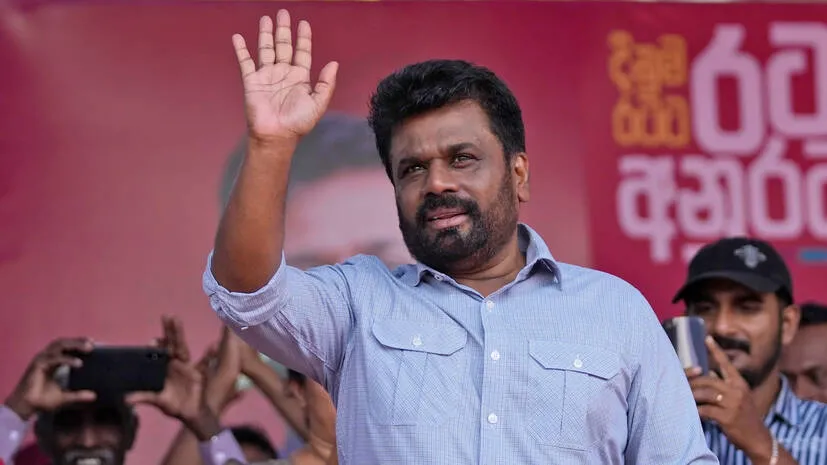

Following the victory in the presidential election, the National People's Power, a left-wing coalition led by President Anura Kumara Dissanayake, has won a two-thirds majority in Sri Lanka's parliamentary election. The National People's Power consisting of 27 parties is led by Janatha Vimukthi Peramuna, a Marxist-Leninist party. Kumara Dissanayake, the ninth president of Sri Lanka, is also the first communist to hold that office. Former President Mahinda Rajapaksa's party held a majority in the current parliament, posing a challenge to Dissanayake's governance. People of Sri Lanka have overwhelmingly accepted Dissanayake's argument that a progressive parliament is needed for administrative reforms and law-making.
The National People's Power alliance secured the majority of votes, including in Jaffna, a northern district predominantly populated by the Tamil minority. Dissanayake's promise to return lands which was seized from Tamil residents after the then government’s victory in the civil war against the LTTE played a major role in garnering the support of the Tamil community. Sri Lanka's former presidents have consistently failed to deliver on their promises to the Tamil community. If Kumara Dissanayake succeeds in fulfilling his promise, it will be a significant triumph for his commitment to communist principles.
The major challenge that lies ahead of Dissanayake is to free the country from the debt trap and strengthen it economically. The Sri Lankan Sinhalese community, which gave a huge majority to Dissanayake, is also expecting miracles from him. Dissanayake has announced that he would give power to the people by holding local and provincial elections. Dissanayake can ensure support from the grassroots if he manages to implement this announcement without delay.
Dissanayake has announced that the National People's Power will change the Constitution to concentrate more powers on the president to avoid the current situation where there is bicameralism as powers are divided between the president and the prime minister. A majority in Parliament is not enough for this. Rather, there should be unity between the Sinhalese, Tamil and Muslim communities in the country. This unity will be possible only if Dissanayake's hopeful promises are put into practice.
The tenure of former rulers Mahinda Rajapaksa and his brother Gotabaya Rajapaksa was marked by the adoption of neoliberal policies that plunged Sri Lanka into a trap of foreign debt. Sri Lanka had taken a significant amount of foreign loans to fund infrastructure development, relying heavily on sources like the World Bank, ADB, IMF, and Chinese development funds. As debt accumulation intensified, Sri Lanka's social security programs deteriorated, leading to rising unemployment and severe inflation. Alongside this economic collapse, widespread corruption and nepotism by the Rajapaksa family compounded the crisis, completing Sri Lanka's disastrous scenario. No other countries except India helped Sri Lanka during this period of financial crisis. India provided money, medicine and other goods to Sri Lanka. Let us hope that the new president of Sri Lanka will shape the foreign policy without forgetting this. The people of Sri Lanka desired change to achieve economic recovery. Let us hope that Dissanayake can accomplish this within the next five years.